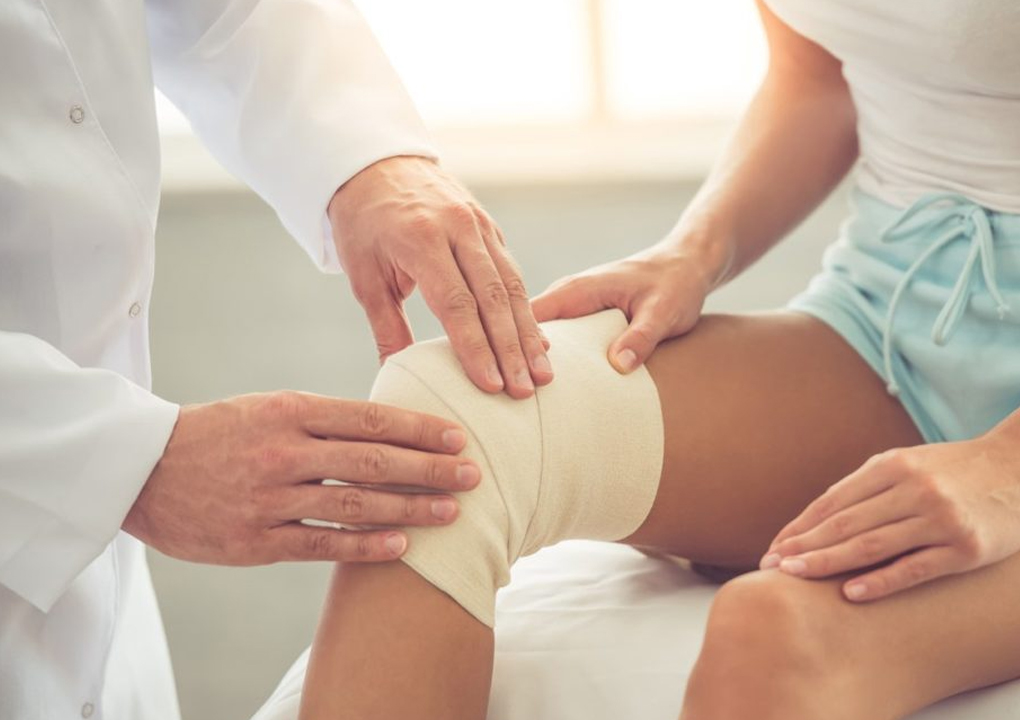Knee Replacement Surgery

Knee replacement surgery is also known as arthroplasty of the knee. It is a surgical procedure that replaces the diseased or damaged surfaces of the knee joint
The procedure involves replacing the parts of the knee affected by injury, disease, or age with artificial parts. The most common cause for knee replacement surgery is arthritis in both knees. In order to determine whether a knee replacement is right for you, orthopedic surgeon assess your knee’s range of motion, sturdiness and strength. They’ll use X-rays to determine the seriousness of the damage. Your prostheses and surgical techniques depends upon age, weight, activity level, knee size and shape, and overall health.
A knee replacement is a surgical procedure that replaces parts or all of a person’s knee joint. The surgery can be performed as a partial or as a total replacement. The goal is to relieve pain and restore function. The most common cause of need for a knee replacement is an injury to the joint, such as from arthritis, injury or infection. Additional causes include wear and tear from years of use, advanced age and sometimes obesity.
Other health conditions that cause knee damage include:
- Rheumatoid arthritis
- Haemophilia
- Gout
- Disorders that cause unusual bone growth
- Death of bone in the knee joint following blood supply problems
- Knee injury
- Knee deformity with pain and loss of cartilage
Knee replacements are major surgery, so they are only recommended if other treatments have failed. The surgery is often used to alleviate pain and correct deformities such as arthritis, which can limit daily activities like walking or climbing stairs.
You may be offered knee replacement surgery if:
- You have severe pain, swelling and stiffness in your knee joint and your mobility is reduced.
- Difficulty in doing daily life activity.
- Increased in age.
There are 2 main types of surgery:
- Total Knee Replacement – Both sides of your knee joint are replaced
- Partial (Half) Knee Replacement – Only 1 side of your joint is replaced in a smaller operation with a shorter hospital stay and recovery period
There are a few other surgery alternatives to knee replacement. But it’s important to understand that the success of these procedures may not be as good as knee replacement in the long term. Dr. Ambarish Saraf will talk with you about this and other options and suggest you with best treatment plan. Some of those options could include:
- Arthroscopic washout and debridement is a procedure in which the surgeon needs to wash out the joint capsule and remove all the loose bone fragments.
- Osteotomy is a surgical procedure done to realign the bones of the skeleton. The procedure is usually done to correct bone deformities, such as bunions and hammertoes.
- Mosaicplasty is a keyhole operation that involves transferring plugs of hard cartilage, together with some underlying bone. This procedure is used to treat patients with chronic pain.
A pre-operative assessment will be taken by Dr. Ambarish Saraf to know about your past medical history and several reports will be taken. He may advise you to stop taking certain medications and dietary supplements before your surgery. You’ll likely be instructed not to eat anything after midnight the day of your surgery. In the weeks leading up to your operation, be sure to keep active and focus on strengthening the muscles around the knee. Don’t worry though, a physiotherapist can make sure you get sound advice on what’s right for you. With Dr. Ambarish Saraf’s 18 years of experience he is providing the best knee replacement treatment in Vikhroli, Mumbai
You’ll usually be in hospital for 3 to 5 days, but recovery times can vary. Once you’re able to be discharged, your hospital will give you advice about looking after your knee at home. You may need to use a frame or crutches at first and a physiotherapist will show you exercises to help strengthen your knee.
Most people recover from surgery and can stop using walking aids after about six weeks. They can start driving again around six to eight weeks, and will experience a full recovery in a few years as the scar tissue heals and their muscles are restored. Mentioning that a small number of people might take longer is also an option.
Knee replacement surgery is a common operation and most people do not have complications. However, as with any operation, there are risks as well as benefits.
Complications are rare but may include:
- stiffness of the knee
- infection of the wound
- infection of the joint replacement, needing further surgery
- unexpected bleeding into the knee joint
- ligament, artery or nerve damage in the area around the knee joint
- deep vein thrombosis (DVT)
- persistent pain in the knee
- a break in the bone around the knee replacement during or after the operation
In some cases, the new knee joint may not be completely stable and further surgery may be needed to correct it. Dr. Ambarish Saraf is the best knee replacement surgeon in Vikhroli east with his 18 years of experience he has always achieve success among all his surgeries.

Dr. Ambarish Saraf
- CONSULTANT ORTHOPAEDIC SURGEON
- JOINT REPLACEMENT SPECIALIST AND SPORTS SURGEON

